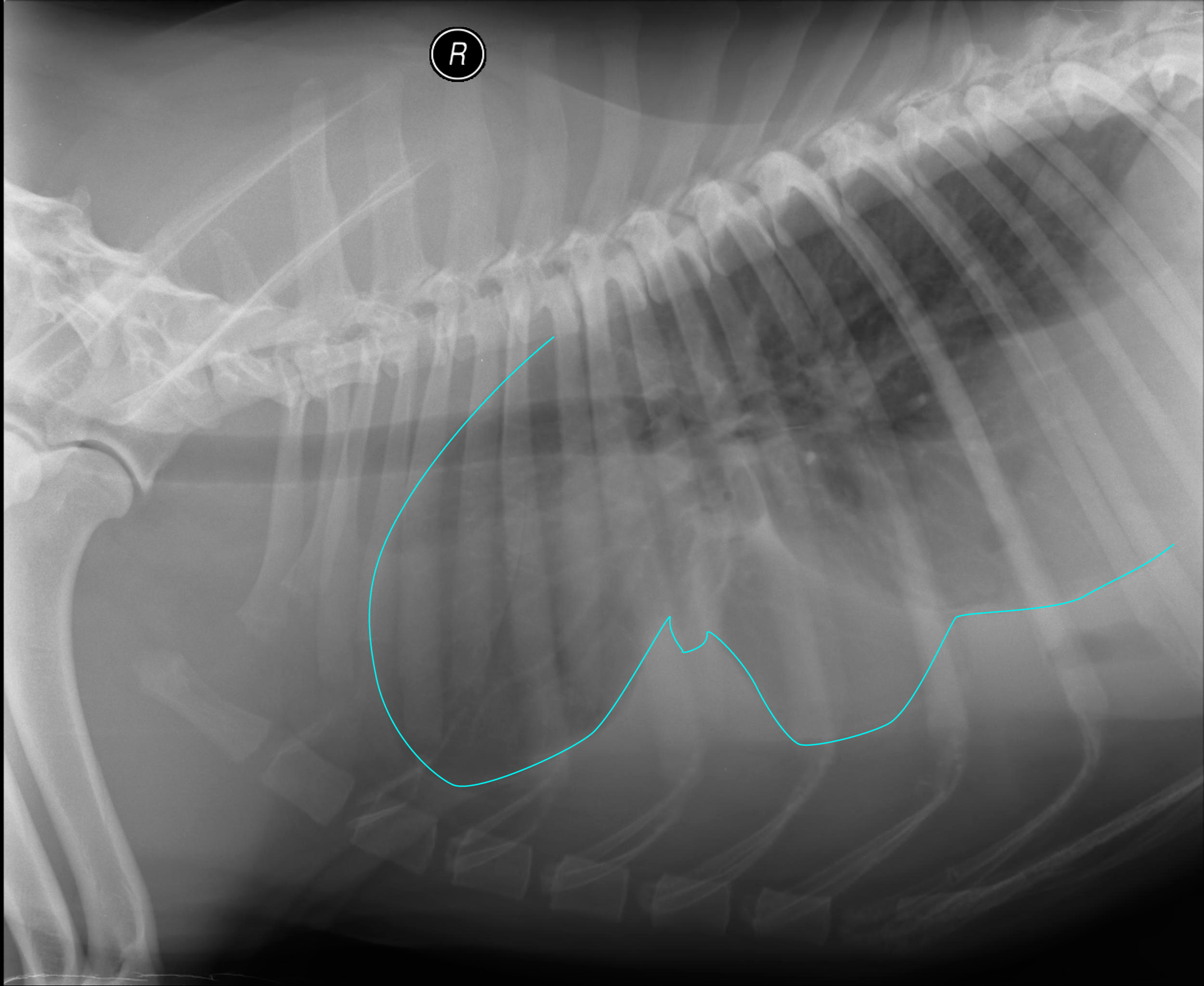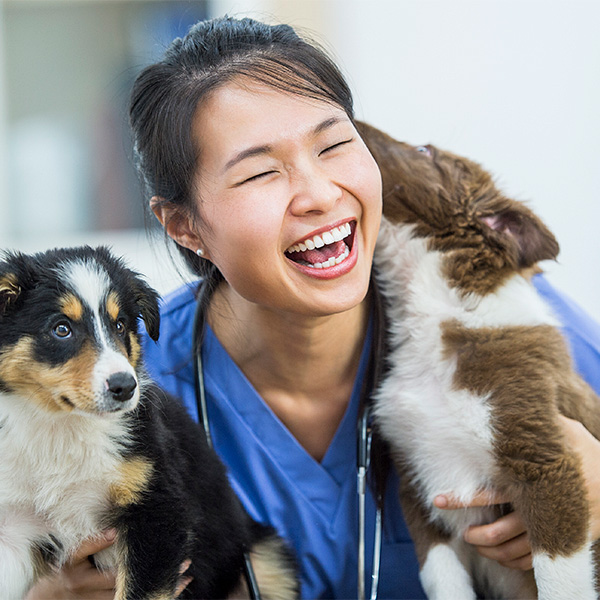Pyothorax in a dog

Pyothorax literally means an accumulation of pus in the chest around lungs. The fluid causes the lungs to partially collapse.
These types of infections occur more often in cats. We believe that their thin chest walls can easily be penetrated with a sharp claw; the hole closes over and we now have a moist, dark environment low in oxygen which allows a certain type of bacteria to thrive.
In dogs, this is most commonly seen in sporting and hunting dogs, or at the very least, very active dogs that go deep into the bushes where they can sustain piercing chest wounds. It can also occur from from inhaling debris into a lung, or more rarely, from pneumonia. Any of these can result in a lung abcess that can rupture and lead to the accumulation of pus in the chest cavity.

Winston was taken to see his family veterinarian because he hadn’t been feeling well for a few days and his breathing seemed more shallow. Radiographs done by his family veterinarian showed that Winston had an abnormal accumulation of fluid in the chest cavity and they noted he had a high fever. He was referred to our hospital for further care of a suspected pyothorax.
An ultrasound was done to further determine whether Winston could sufficiently be treated with chest tubes (tubes that are placed in the chest cavity and allow drainage and flushing of the chest cavity), or whether it would be more likely that he would require surgery.
The ultrasound was very abnormal and it was decided that Winston’s best chance would be to undergo surgery but we were concerned that he was very sick and feverish at this point. We elected to drain his chest cavity to start, treat him with intravenous fluids, antibiotics and undertake his surgery the next day. Dr Mareschal, one of our radiologists, drained more than 2 liters of pus by using the ultrasound to guide the needle in the pockets of fluid. Samples of the pus were sent to a veterinary bacteriologist for accurate identification of the types of bacteria involved and the antibiotics they would be most sensitive to.

Surgery was done and Dr Weh spent the better part of 2 hours removing debris from poor Winston’s chest wall. It did appear that his pyothorax had been caused by a penetrating chest injury which had since healed up but caused quite a reaction in his chest.
Winston recovered well and seemed comfortable enough except that his breathing rate concerned us. It remained more rapid and with more effort than we would have liked. About 24 hours after the surgery, we became very worried that he could not sustain working this hard to breathe. Even when he was given more oxygen and his pain medications were adjusted, he seemed to continue to have too much difficulties breathing.

In order to give his body a chance to rest from his exhausting breathing efforts , we talked with his family about putting him on a ventilator for 24 hours.
Dr Lang chose settings for him on our specialized mechanical ventilator that would allow his breathing to be taken over. The nursing care is intensive and these patients always having someone by their side – their own nurse or one of the ICU doctors.
Winston did very well once we started breathing for him and the only concern we had is that he required a lot of anesthetic drugs to be able to keep him asleep for that time!
Our boy was ventilated for 24 hours. His lungs seemed happier and his breathing was more normal. We had hoped that this was enough and Dr Enberg was able to wean him from the mechanical ventilator the next day.

His breathing seemed more much normal and he no longer needed extra oxygen. He continued to improve. The chest tubes were then removed, his antibiotics were being given orally (since he was eating readily as seen here). He was sent home a few days later with several weeks worth of antibiotics. We expect he will make a full recovery and will be able to return to his usual activities but given that he had open chest surgery, this will take a few months.


